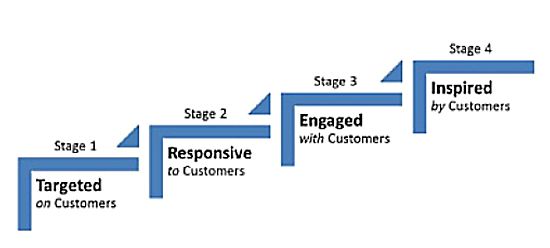Positive Inspiration Checklist for Entrepreneurs Starting a New Business
Thinking about starting a new business can be inspiring, motivating, exhilarating and life-changing. There are always risks, hard decisions, heavy workloads, challenges, but the rewards can make the effort worthwhile. New small business ventures work when the creator is passionate and dedicated about what they want to do, and has done enough homework to give the fledgling start-up a good chance of success. It also means knowing what your potential users want, and need, and how to deliver both in the best and smartest way possible that beats your competition. Ideas are easy to sow, but nurturing them to real their full potential requires hard work and perseverance. Below are a checklist of concepts and inspirational ideas about starting a new business.


► Know your product or idea better than your competitors. Examine the competition and know that you can do better. Know your customer - what they want, how they want it delivered, and know that you can satisfy what they need.
► You need a burning desire and commitment to succeed. You need patience, dedication and a will to succeed so you don't slacken off when times get tough.
► Understanding the users experience, needs and how users will react to your new venture is the core of a new business model. User-centric design, and implementation is everything.
► A successful entrepreneur is a doer and achiever, not a merely a dreamer or an innovator.
► Don't let the finances overwhelm you. This can come later. Don't ignoring it, but good ideas and sound business models attract investment. Finance is Stage 2 of the project. Try to fund the development phase yourself.
► Embrace and love what you don't know, especially at the start. The unknown can be your greatest asset and opportunity. Welcome the unknown because it means you will be doing things differently from everyone else.
► Share and talk to people about your idea if there is no patent involved, otherwise secure your patent first. But don't let the lack of interest or doubt expressed by some, quell your enthusiasm. The input from doubters can be invaluable if you handle it the right way.
► Learn from unhappy customers as you can learn many things from them. This will help you improve your project.
► Build on the impetus of making a start. You make no progress by being hampered by indecision. Enjoy the ride, going quickly and turning fast as you explore new ideas. You can't stop progress. Inertia is a silent project killer.
► Taking risks with new ideas or business models for things that has not been tried before can be fun and exciting. 'Sure things' are likely to fail because they have been done before. You are unlikely to be able to compete successfully unless you have something new.
► The real and only true boss is your customers, that you have identified and spoken to. They can, and will fire you and your team, if you fail to deliver what they need and want. They will take their interest, enthusiasm and money elsewhere if they remain unconvinced about you 'their employees'.
► Try not to be a one-man show. Have a good team of advisers that share your dream and commitment.
► Don't be a futurist, aiming too far ahead in time. Your product has to deliver here and now, and provide a bridge to the immediate future. Do not depend on your customers having to make giant leaps beyond what they know and understand. Provide the pathway and directions, so that they can see where the project is heading and how it will deliver for them in the near future.
► Don't get lost amongst the trees and undergrowth. Step back, zoom out and keep focusing on the beautiful project and forest you are planting and nurturing.
► Expect your new business to be like riding a roller coaster and enjoy the ride with its highs and lows, twists and turns and even some fear. You won't always be in control. Adopt mindlessness as a tactic and lawys have a series of well prepared options and fallbacks if things go wrong. This helps you to deal with the unexpected and help keep your emotions under control.
► Make sure you are solving real problems and addressing real needs that your users want. If you have to spend a lot of time convincing your customers that they need what the project provides, you will probably not succeed. You can't tell your customer what they want. It has to satisfy their needs now.
► Don’t start a project unless it is something you love and is an obsession for you. If you are unconvinced then you will be unlikely to succeed.
► Choose and want to be different! Then you will stand out from the crowd and your customers will notice you.
► Filter the advice you receive. You don't have to consider everything, or analyse the pros and cons of everything suggested. Don't get bogged down over-thinking potential problems. Many of the issues may not apply to the final version of the project.
► You need a good business plan and model. Keep it to a single page.